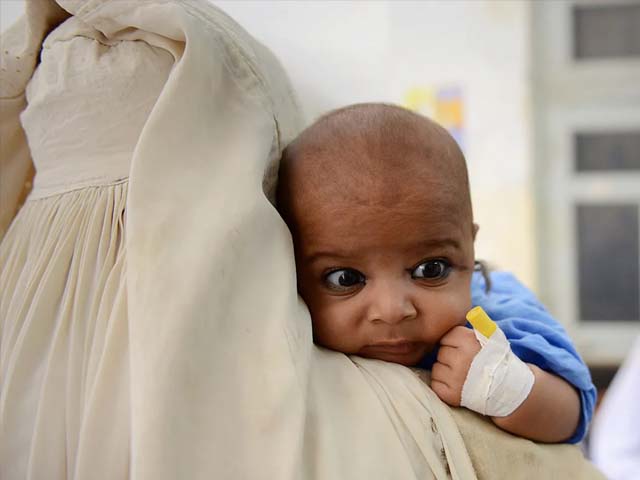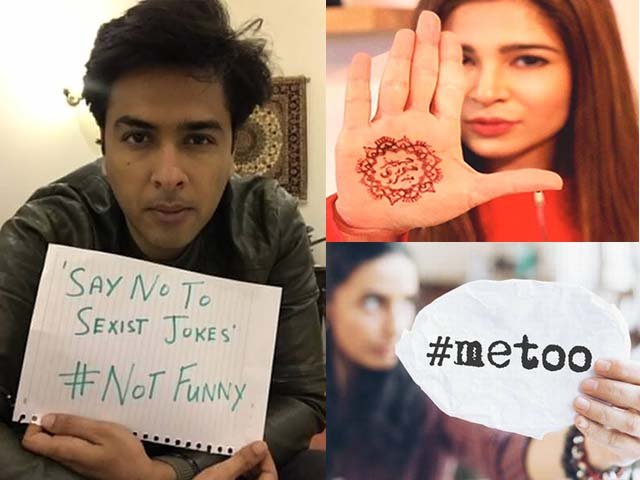
Is it fair to blame Imran Khan for the Peshawar Church Blast?
He was pelted with abuses and rotten tomatoes; why do we find a scapegoat for every wrong that occurs here?
The church blast in Peshawer took away more than 80 innocent lives. People had gone there to pray, not knowing their funeral prayers would follow soon.
As always, the shock had subsided the day after the blast, but there was sadness – a constant dull ache that refused to recede. A recurring realisation existed that so many had lost their lives just because they prayed differently. Nothing seemed to help. Tweeting and facebooking allowed people to vent and rave temporarily, but frankly, social media acts as temporary anaesthesia. It numbs the pain for a bit, but the pain and anger returns. Always.
Then there was a call to attend a vigil for the victims and it turned out to be just what I needed. I needed a forum to express my solidarity with Christian Pakistanis - stand by them and join them in prayer. I needed some semblance of peace in that time of turmoil. As a mother, I needed to teach my daughter that this matters to us.
Thankfully, the vigil offered all this.
Like most vigils, a handful of people gathered at 8:00 pm. outside the Karachi Press Club. There were representatives of the Christian community, activists, a few Pakistan Tehreek-e-Insaf (PTI) supporters, and some student activists of other parties – all with candles amid eerie peace that is always present on candlelight vigils.
While some people took the microphone to share their feelings, others quietly donated blood at the makeshift blood camp. They knew that their blood might never make it to Peshawer to the injured of the blast, but it would reach someone somewhere and someone would benefit.
That was the only thought on everyone’s mind – to help, to do something.
However, slowly the mood began to change. As the crowd spotted PTI supporters showing their respect peacefully, the quiet whispers became loud insults. One person questioned,
“So you kill people in the day by being apologists for extremists, but you attend a vigil for those whom you murdered in the night?”
Another continued,
“You all have your political agenda.”
As the insults became louder and more direct, the anger escalated and the blame game started. Abuses and loud slogans of “Shame Imran Shame” became louder. The poor organizer apologised for the unpleasant allegations being hurled and the ‘peace’ that we had all come looking for, was replaced by the scapegoat syndrome.
As the pastor eventually began to recite a beautiful prayer for tolerance and harmony in Pakistan, the irony became all the more jarring. I realised that the lack of tolerance first rears its ugly head when people can no longer hear each other out. We all know that as a nation, whenever anything happens, we are quick to jump the gun almost as if our only way of trying to find sanity amidst the mayhem is by looking for a scapegoat.
For this incident, the scapegoat happens to be Imran Khan and PTI’s pro-negotiation policy. I saw this not just at the vigil; but on social media, talk shows and heard it in conversations. According to Twitter, he was even pelted with insults and tomatoes. His supporters were made to feel guilty as if they and their party were the reason for killing the slain.
As a nation, we are too angry, too bitter, too mistrusting and too awkward in the art of dialogue. We accuse, we abuse, we vent, we blame and we move on. Until the next tragedy and then the chain begins again.
However, this attitude is hardly surprising and our history shows this more than once. I recall clearly the Karsaz blast of October 18, 2007 that killed some 200 people. Mohtarma Benazir Bhutto had returned to Pakistan with utmost sincerity to lead her people to democracy once again and her welcome procession was attacked. Although she survived that blast, just hours after the blast, I remember these words being uttered:
“She must have gotten the blasts done herself to gain sympathy and support”.
These voices were silenced but only once she was assassinated. However, the inherent psyche still remains.
This blog is not about Imran Khan or the efficacy and legitimacy of proposed negotiations. This is not about the fact that Pakistan has lost 35,000 civilians and 3,500 security personnel to acts of terrorism between 2006 and 2011 only according to the Economic Survey of Pakistan 2010-2011 – years in which we had a strictly no-negotiation policy. This is not about whether extremists should be offered an office or not, though that move actually may help give them a face and make it more feasible to deal with them. After all, whatever the scapegoat says or does, even if it makes sense, people will oppose it on a reflex.
This is about the realisation that if we differ in opinion, we must first learn how to disagree with a certain decorum. We can’t hurl a shoe at Musharraf and insult Imran Khan, and then expect tolerance in society. If we do so, we will claim our sincerity as much as we like, but we will end up causing more dissension, which is not what this country needs at all. By playing blame-games, are we doing a service or a disservice to those who lost their lives last Sunday?
It is time we gave practical solutions rather than blame scapegoats with allegations of unholy alliances.




COMMENTS (44)
Comments are moderated and generally will be posted if they are on-topic and not abusive.
For more information, please see our Comments FAQ